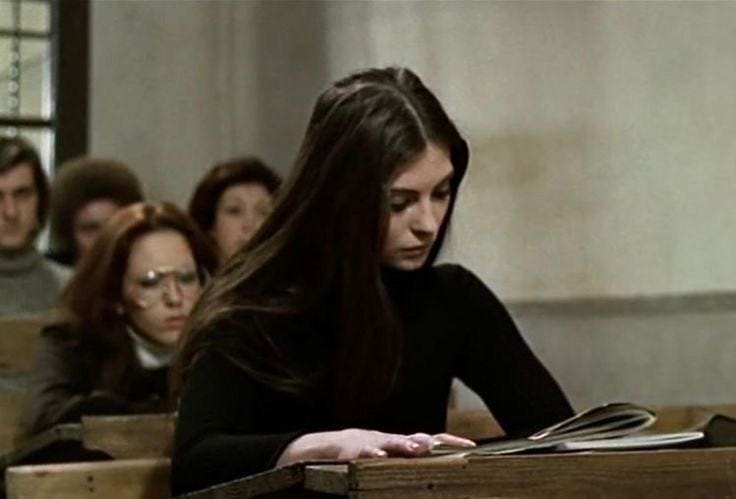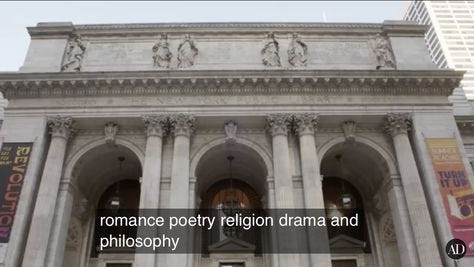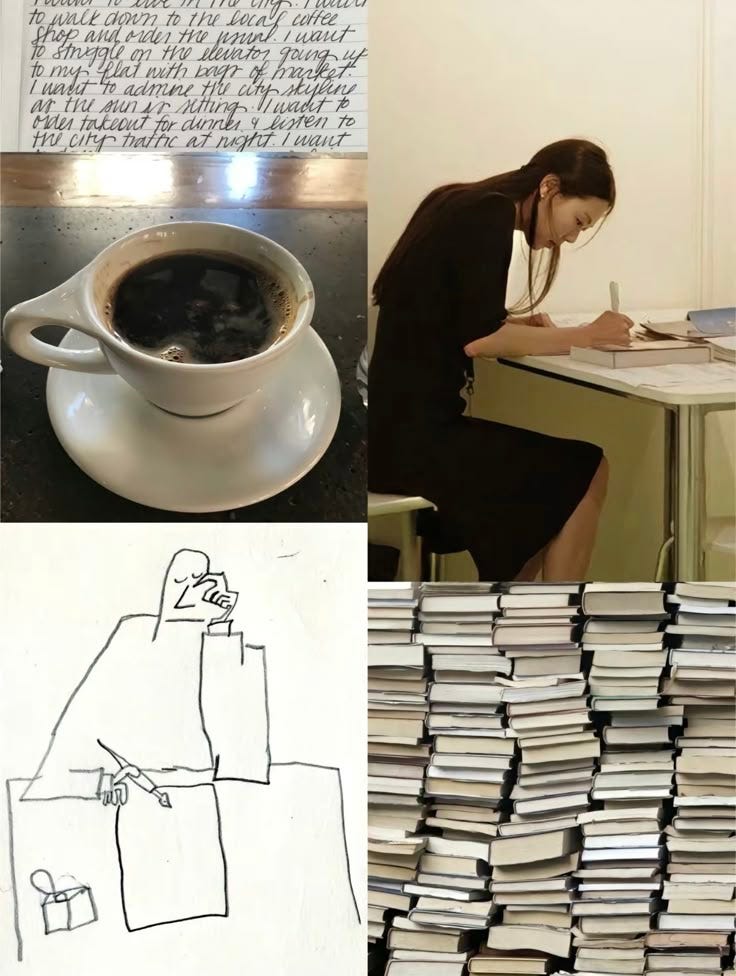hello.
one of the best ways to expand your thinking is to read widely and intentionally, but finding articles that genuinely challenge, inform, and enrich your perspective requires more than just scrolling through whatever happens to appear in your social media feed. people often inquire about my approach finding interesting articles and i wanted to take time to share my process with you below (+ i’ll be including some of my favorite publications at the end of this letter)
the internet is an endless library, but without curation, it can also be a wasteland of recycled opinions, shallow think pieces, and clickbait masquerading as intellectual engagement. if you want to cultivate a reading habit that sharpens your intellect, broadens your perspective, and introduces you to ideas you might not have encountered otherwise, you have to be deliberate.
where to start: curation vs. discovery
my approach to finding worthwhile articles is twofold: curation (building a trusted network of sources that regularly deliver high-quality writing) and deliberate searching (actively seeking out pieces based on topics of interest).
curation means identifying publications and platforms that consistently publish thought-provoking, well-researched work. for me, this includes the paris review, the new yorker, the london review of books, longreads, lithub, jstor daily, aeon, psyche, the yale review, the new york review of books, hedgehog review, and nautilus, among others that i’ve listed below. these sources cover literature, philosophy, history, science, and culture with depth and nuance—offering analysis rather than just surface-level commentary.
i subscribe to newsletters from these publications, which helps bring the best articles straight to me without having to hunt them down daily. but i also supplement this with independent thinkers and writers on substack, where some of the most exciting, original essays are being written right now. platforms like substack, medium, and even certain corners of tumblr or reddit can be goldmines for niche, highly specific discussions that wouldn’t find a home in mainstream media.
going deeper: how to research like a scholar
beyond curated reading, i also believe in the value of deliberate searching. seeking out writing on specific topics instead of just passively consuming whatever appears in front of me. if i come across an idea in a book, a conversation, or even a fleeting thought, i go looking for more.
one of my favorite strategies is using academic databases like jstor or project muse, where you can find peer-reviewed journal articles, historical texts, and serious research on virtually any subject. many of these databases have free content or allow you to read a limited number of articles per month without a subscription. google scholar is another useful tool for finding research papers and academic perspectives that offer more depth than traditional media.
if i’m searching for cultural or literary criticism, i browse archives from the new york review of books, the london review of books, and the yale review, or even look at bibliographies from books i love to see what sources those authors were engaging with. for historical perspectives, i check the internet archive, which houses an enormous collection of digitized books, essays, and journals that are no longer in print.
an underutilized trick is searching for “pdf” alongside keywords on google. this often pulls up academic essays, university lecture notes, or unpublished manuscripts that wouldn’t appear in a normal search. for example, if you’re interested in existentialism, searching “existentialism pdf site:.edu” will often bring up free university resources and full-text papers rather than just blog posts or surface-level explainers.
following curiosity: becoming an intentional reader
the key to reading in a way that actually makes you smarter isn’t just about volume, it’s about quality and connection. rather than consuming information passively, follow your curiosity with intention. what’s something you’ve been thinking about lately? a fleeting question, a historical event, a concept that keeps resurfacing in your life?
instead of defaulting to scrolling, take a moment to actively search for writing on the topic. go beyond google’s first page, explore niche literary journals, philosophy essays, obscure blogs, and academic articles. when reading, don’t just absorb—engage. take notes, look up references, connect ideas between different pieces. when an article cites a book, track it down. when a book mentions a philosopher, read their primary texts. the best reading is fractal. it expands outward, leading you into new directions of thought rather than confining you to a single, static perspective.
over time, you’ll develop your own ecosystem of sources. essentially a network of publications, writers, and intellectual rabbit holes that continually push your thinking forward. it’s this kind of deep, layered engagement with ideas that changes the way you see the world, not just reading to consume information, but reading as a way of thinking, questioning, and making sense of existence.
and maybe most importantly: let yourself get lost in it. some of the best things i’ve ever read weren’t things i was looking for. they were things i stumbled upon by clicking one link, then another, following an obscure citation, or reading a footnote that led me somewhere unexpected. the internet is overwhelming, but it’s also full of undiscovered brilliance. the best way to find it? stay curious, stay intentional, and never stop digging.
publications i love and trust
Keep reading with a 7-day free trial
Subscribe to milk fed to keep reading this post and get 7 days of free access to the full post archives.





